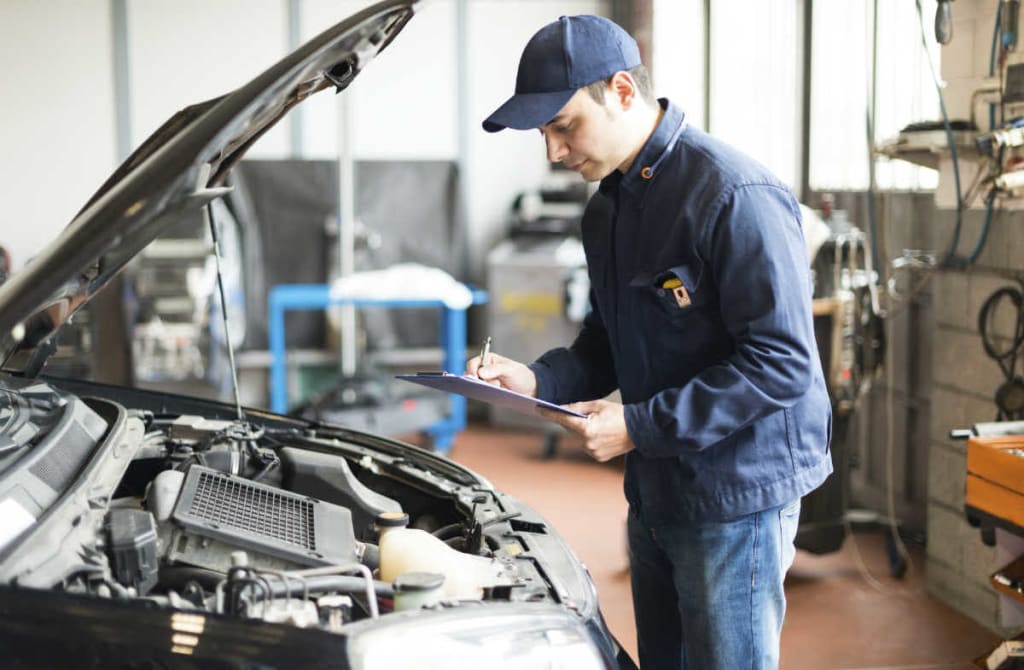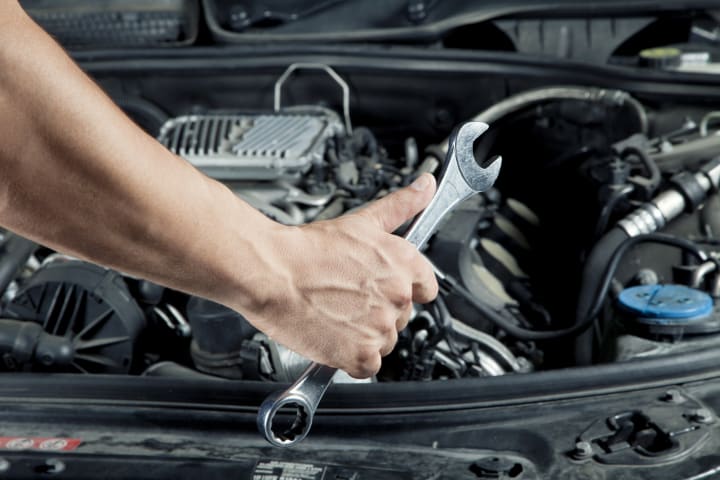Why Are Mechanics so Expensive?
Ever wonder what makes mechanics so expensive to hire or why that alternator costs thousands to fix? A mechanic's buddy explains it all.

My most recent car accident was one that involved mostly superficial damage—and yet, my car was considered totaled by the insurance companies. Even though I got a replacement, I still miss that car enormously.
My beautiful black Spyder was hit by a guy, and the damage was mostly on the side of my car and near the bumper. I also had a little bit of damage on the tire. Knowing my stuff about cars, I didn't expect my car to be totaled for superficial body damage.
However, when the insurance company checked it out, the damage totaled to $6,000. My car itself was only worth $5,000 at the time. So, I ended up having to scrap it and replace it with a car of a similar make and build.
When I found out the amount it'd take to fix the car, my jaw dropped. Like many people, I wondered what made mechanics so expensive to hire. So, I decided to ask around.
It just so happens that my best friend was a mechanic for AAA. My future bridesmaid also works for a garage. My other two friends are lube techs, and I also had another ex who worked on cars. It's safe to say that I found some answers that might inform you as to why mechanics are so expensive.
Being a mechanic is a skilled trade.

Like all skilled trades, if you want to become a mechanic, you will have to learn the ropes. All mechanics have to learn how to fix cars—either by going through an apprenticeship or some other specialized training course.
When you're paying for a mechanic, you're paying for their knowledge and experience. A well-read mechanic who has spent years on the job will get the job done faster, diagnose problems better, and be capable of fixing difficult jobs others can't handle.
The quality of a mechanic's knowledge and experience is what determines how much he gets paid. An ASE Certified A-Level Mechanic is going to be paid more than a B-Level Mechanic for that very reason.
If you have a luxury car or a very unique problem, one of the reasons that mechanics are so expensive is because you need to pay a premium for the skillset required to fix your vehicle.
Believe it or not, being a mechanic is also a long term health hazard.
Most people don't realize this, but being a mechanic is a serious problem for your long term health. One of the reasons that makes mechanics so expensive is because they actually need to set aside money for inevitable medical bills.
My friend John was actually the one who pointed it out to me first, in a conversation that went like this:
"You see my hands?" John asked, waving his oil-stained hands in front of me.
"Yeah."
"You see that black stuff?"
"Yeah. It's oil. So what?"
"It's not just oil. It's cancer. Lots of mechanics end up dying of cancer. You know why? Because the chemicals we use in cars cause cancer. If you're smart, you put aside money because you'll need the money for medical bills later. Because cancer."
Then, there's also the risks of accidents that can happen on the job.

Mechanic work is risky work. Things easily go awry when you're working on cars that have broken parts, which is why most mechanics look a little rough for the wear.
Accidents can happen at any point of the day when you're doing physical labor in a garage. I personally have seen my best friend pry off a tire that almost smacked his coworker in the face as it flew off the rim.
It only takes one bad accident to put a mechanic out of work for the rest of his life. Equipment can also fail, and in many cases, this can lead to a death on the job.
To prevent lawsuits and to field the sheer number of injuries that can happen to a mechanic, shop owners have to buy insurance for injury, death, and similar issues. That insurance costs a LOT of money, and those prices get passed onto consumers.
It also costs a lot to become a good mechanic.
As I said before, car mechanics have to get an education to be able to be hired. They need ASE certification, and in many cases, also may need to attend a community college before shop owners will take them seriously and hire them.
College is expensive, even if it's a community college. Keeping your certification also will cost a lot of money, too. Moreover, car repair knowledge has to be updated as car designs evolve.
What this means is that there's a good chance that the mechanic you're hiring is still paying bills for his education. Guess what that means for your car repair prices. Yep, that means that you will have to pay for the cost of a mechanic's continued education.
Did we mention that the car parts that need to be replaced are also a driving factor in your auto repair prices?

Whether you like it or not, auto manufacturers have created a monopoly on car parts. Many of the parts that you need in order to fix a car can only be obtained from the car manufacturer since manufacturers trademark their parts' designs.
You literally can't get after-market replacements in many cases, and that's by design. Car brands do this hoping that you'll eventually tire of paying higher prices for parts and buy a new car.
Once a manufacturer stops making a part, the prices go up significantly. This is actually why a lot of mechanics have to buy used car parts, or why certain garages might stock up on popular replacement parts.
There's also the fact that mechanic work isn't steady work.
While there's always a need for a mechanic's skill, the auto repair market is always extremely competitive. It's a field that relies on a mechanic's reputation for honesty, and even then, many people will not want to pay a premium price for good work.
Most of my friends will tell you that there are plenty of "dead days" in auto shops. When this happens, they don't make money because they aren't really working. If work was steadier, they would usually accept a lower wage. However, they can't do that, so they have to increase their labor prices.
The cost of tools is also way higher than you'd think.

True story: One of my friends works with a guy who has bought over $1 million in tools. That's not an exaggeration, either. His buddy is an A-Tech who specializes in exotic cars and heavy-duty commercial trucks. Shocking isn't it?
Most people think that the shop pays for the essential tools every mechanic needs, but that's not true at all. These days, the vast majority of auto repair shops will require mechanics to buy their own tools.
It doesn't sound fair, but it's the way it has to be. The overhead for a really small mechanic shop is already sky high, with many places requiring over $15,000 in business per month in order to stay open. Most shops can't spend more money on tools.
Don't get me wrong. Shop owners do try to help. They may be willing to chip in for a $10,000 diagnostic tool, but even then, you can't just waltz into a shop with a hammer and some WD-40 and hope to make things work.
The price of equipment is often one of the key issues that make mechanics so expensive to hire, especially in larger auto shops.
It can also take a while to diagnose certain problems.
Diagnostics aren't always easy to do. Sure, we all know about those little handheld gadgets that tell you a code that you can look up in a book. They are very useful, but what happens when you have a car that's clearly not doing well, but also doesn't seem to have any codes pop up?
When you're a mechanic, that means it's time to take apart the car to figure out what's going on. This can take hours, and at times, they may not even be able to figure it out then. That could be time spent making money on the actual repair—which is why many places charge a diagnostics fee.
If you misdiagnose a problem as a mechanic, you may have to work on the car for free. As you can imagine, it's pretty hard to deal with and you need to pad your wallet in case of losses.
With certain car brands, the reasons why mechanics charge so much is due to the contracts they need to sign to work on them.

Bugattis are among the most expensive car brands to fix. So are Lamborghinis and Ferraris. The parts themselves are pricey, sure, but then again, so is the labor involved with these cars. Most other cars won't require you to pay $400 for an oil change, so what gives?
As it ends up, many car brands of the ultra high luxury type will put mechanics that are certified to work on the cars under contract. That means that those mechanics won't be allowed to charge under a certain amount of money.
The reason why is because some luxury car brands are pricey for the sake of being pricey—Bugatti included. It's a marketing ploy to keep these cars as serious status symbols.
Finally, it's also back-breaking work.
Auto repair is serious physical labor. If you're a mechanic, you will haul equipment that weighs hundreds of pounds. You will constantly be using your hands to tinker with metal, and you might even have to help push cars into your bay.
Back when I dated a mechanic, I'd see him come home, day after day, physically exhausted. We'd often have to ice his back and arms because they burned so much after a long day of work. Saying it's grueling labor is an understatement, but if you can cut it, that's definitely a sign you should be an auto mechanic.
Look, I know paying $70 an hour or more isn't fun, but if you really think about it, all the things that make mechanics so expensive are definitely worth paying for. Trust me, your car will thank you for it.
About the Creator
Skunk Uzeki
Skunk Uzeki is an androgynous pothead and a hard partier. When they aren't drinking and causing trouble, they're writing articles about the fun times they have.






Comments
There are no comments for this story
Be the first to respond and start the conversation.